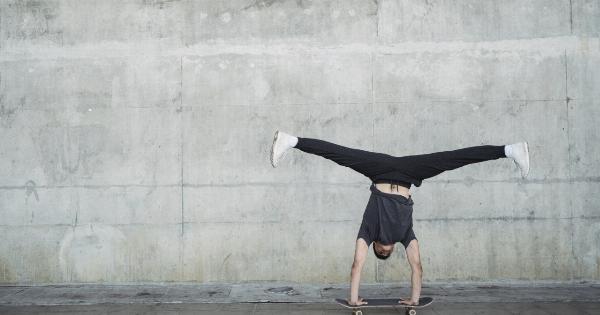Sleep is an essential part of human life. Getting enough sleep is crucial for maintaining our physical and mental health. However, there are several misconceptions about sleep that have been circulated for years.
These myths have been debunked by scientific research, indicating that it’s vital for us to have a proper understanding of the importance of sleep.
Myth 1: Adults need less sleep, and they can function properly with less sleep
Many people believe that the amount of sleep an individual requires decreases as they age. This myth is simply untrue.
While the amount and pattern of sleep may change as we grow older, adults still require seven to nine hours of sleep each night to maintain optimal health.
Studies show that sleep plays a crucial role in restoring and rejuvenating our bodies. This is evident in the way we tend to feel better and more alert after a good night’s sleep.
Moreover, we need adequate sleep to help us process information, learn new skills, and strengthen our memories.
Myth 2: Snoring is harmless
It is common knowledge that snoring is a symptom of sleep apnea. However, many people still think of it as a harmless symptom. Snoring can indicate underlying health issues like reduced airflow and chronic respiratory problems.
It can also lead to poor sleep quality, sleep deprivation, and mood disorders. Loud and persistent snoring should not be ignored and requires medical attention.
Myth 3: Sleeping with the television on helps one sleep better
Many people think that sleeping with the Tv on can lull them into a better and deeper sleep. However, the opposite is true. Sleeping with the television on is a distraction, which creates an effect similar to blue light from mobile phones and laptops.
The light from the television stimulates the brain and triggers a state of alertness. It can also lead to difficulty in falling asleep and a lower quality of sleep.
Myth 4: If one is tired, take a nap to recharge
Napping can significantly impact your sleep cycle patterns, especially when it’s done during the day. Napping for more than 30 minutes can leave you feeling groggy and disoriented. It can also disrupt your nighttime sleep.
If you feel sleepy during the day, it’s better to take a short nap of no more than 20-30 minutes than sleep longer than that.
Myth 5: Alcohol and sleeping pills help you sleep better
Many people believe that sleeping pills and alcohol can help them sleep better. While alcohol and sleeping pills may help you fall asleep faster, they can significantly disrupt your sleep patterns, which can impact your physical and mental health.
Both substances suppress REM sleep, which is critical for cognitive function and memory consolidation.
Myth 6: Snacks before bed make you gain weight
It’s a common belief that eating before bed leads to weight gain. However, it’s just a myth. What matters most is the number of calories you consume throughout the day. Eating light snacks before bed can help prevent hunger.
A small, healthy snack before bed may also improve sleep quality by regulating blood sugar levels.
Myth 7: Sleeping less at night can be compensated for by napping more during the day
While napping during the day helps one feel rested, it cannot fully compensate for a lack of sleep at night. Nighttime sleep plays an essential role in restoring the body and mind. It is also the time when our bodies naturally and deeply rest.
Daytime naps, on the other hand, are less efficient and can have a negative impact on nighttime sleep patterns. Moreover, excessive daytime sleeping may indicate an underlying health issue and should be investigated by a professional.
Myth 8: Chronic Insomnia is incurable
Insomnia is a sleep disorder that affects millions of people worldwide. Many people believe that insomnia is incurable and that there is no hope for improvement. However, this is not true. Insomnia can be treated.
Treating insomnia may involve making adjustments to your sleeping habits, lifestyle changes, or using medication. A consultation with a sleep specialist is the first step in managing insomnia.
Myth 9: You don’t need Sleep if you have a lot of caffeine
Many people think consuming caffeine during the day can compensate for lack of sleep at night. However, the opposite is true. Caffeine is a potent stimulant which can impact sleep quality.
It can also lead to increased anxiety, making it harder to fall asleep at night. Consuming caffeine should be kept to a limit, and it’s advisable to avoid it late in the day.
Myth 10: Lucid dreaming is dangerous
Lucid dreaming is a condition in which a person is aware that they are dreaming and can take control of the dream’s narrative. Some people believe that lucid dreaming is dangerous and can cause psychotic episodes. However, this is not true.
While lucid dreaming is a relatively new field of study, there is no empirical evidence that it causes any neurological or psychological harm. In fact, many people experience lucid dreaming and enjoy the enhanced creativity and relaxation that comes with it.





























